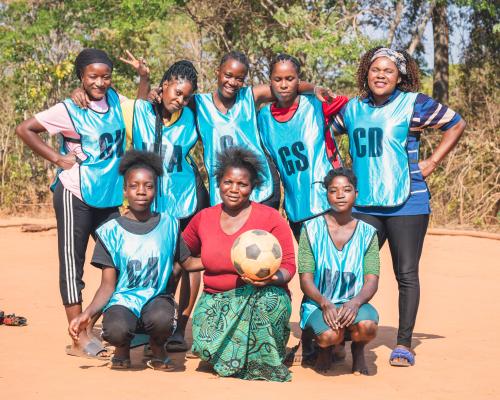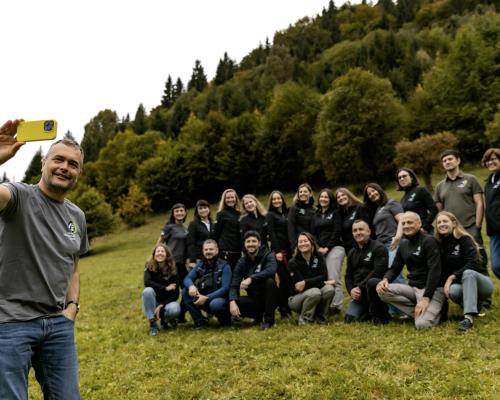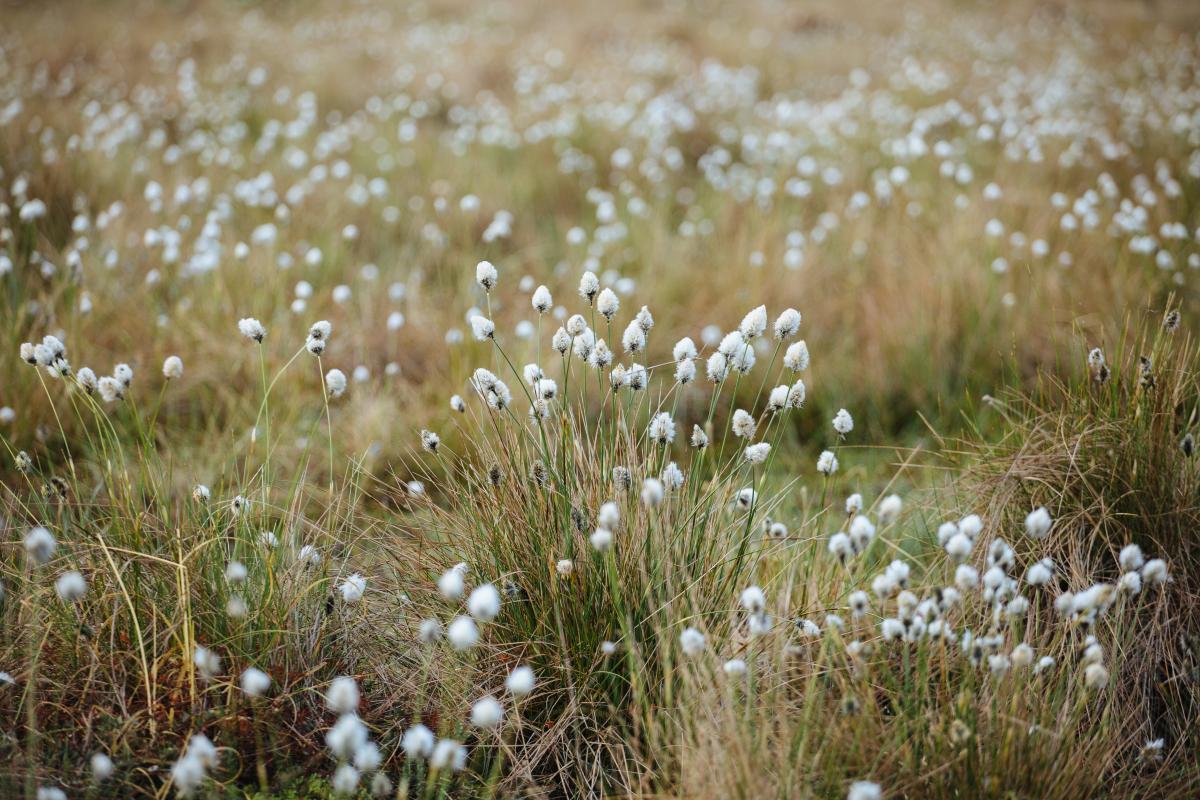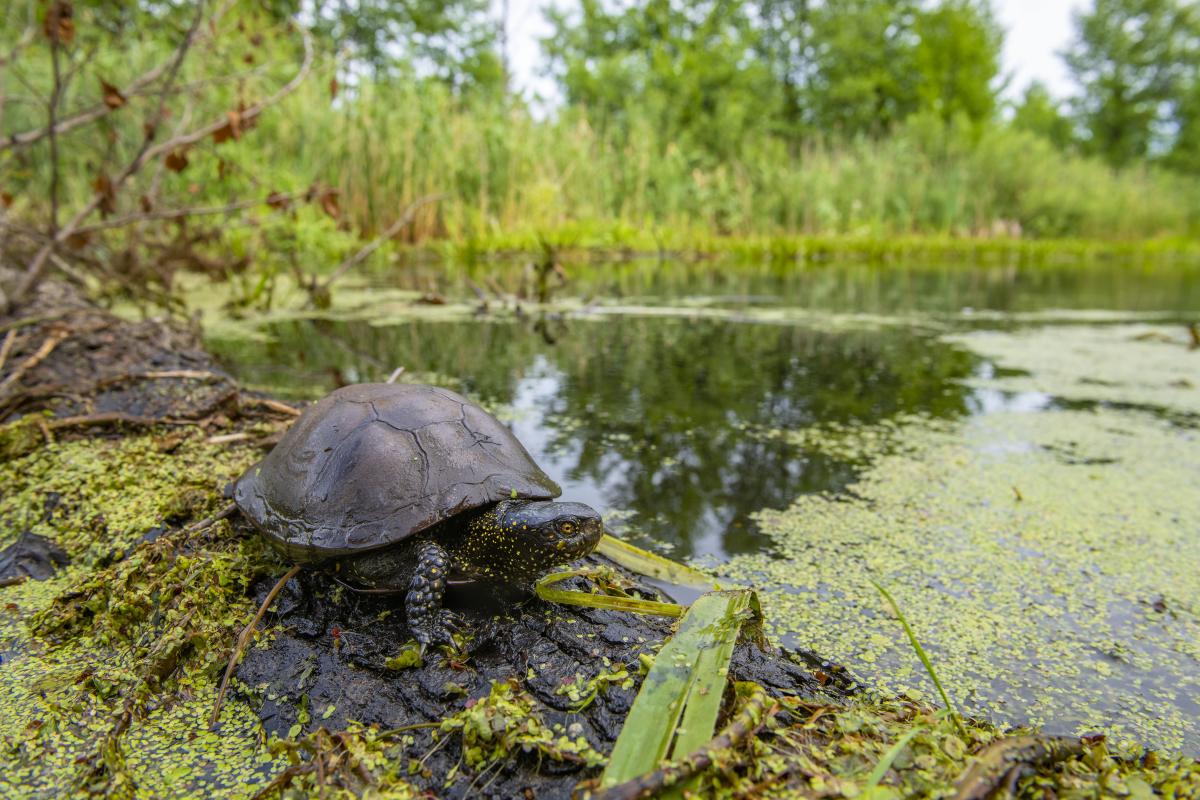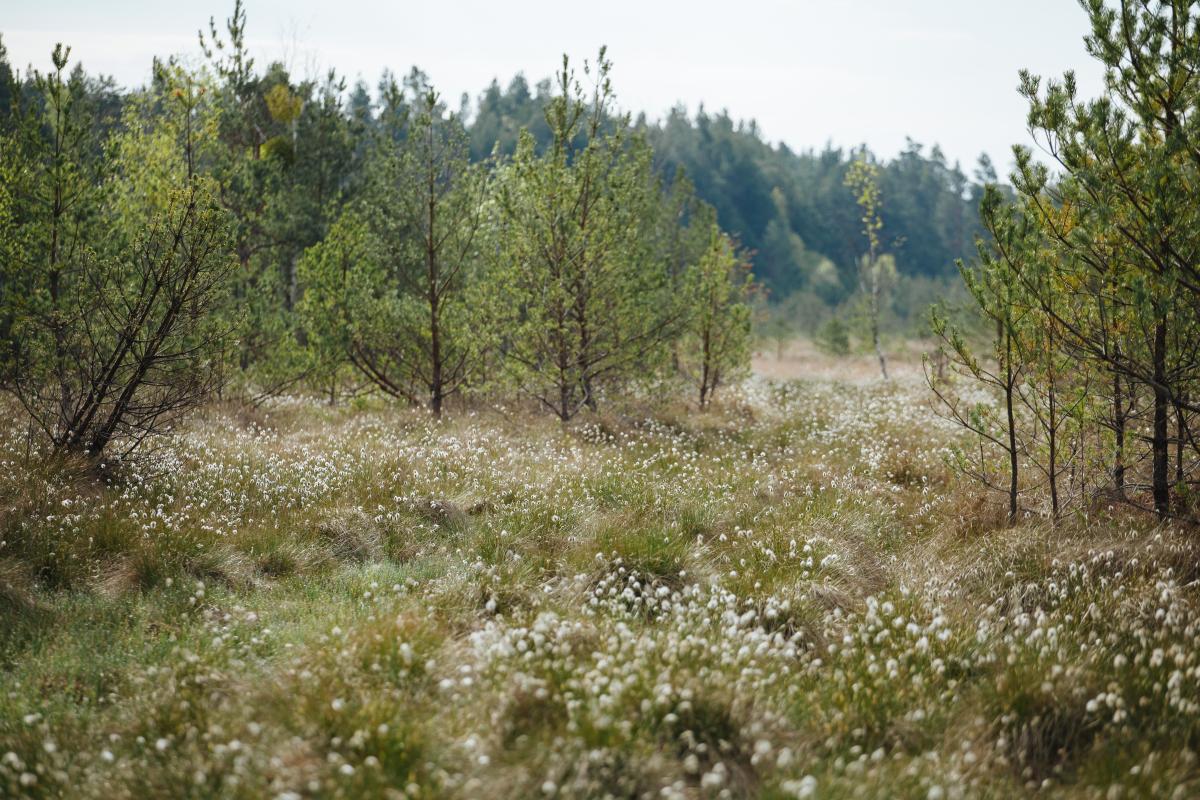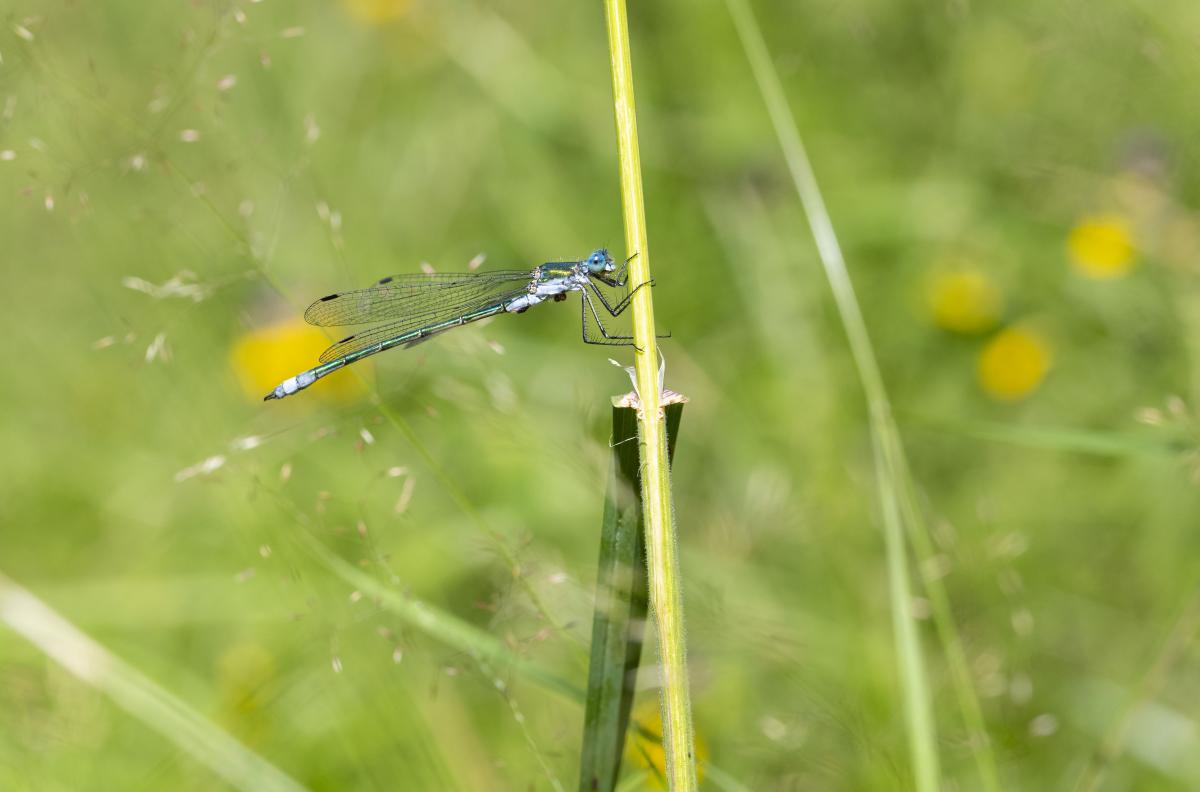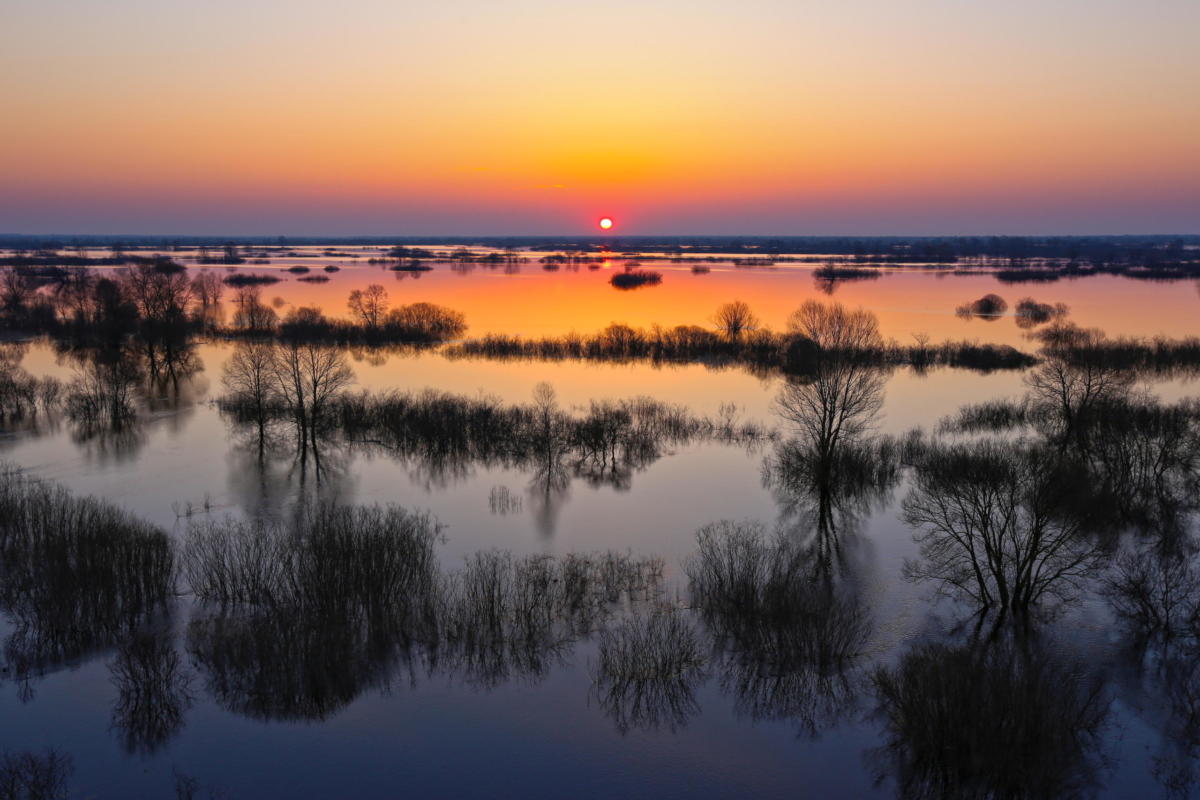In Polissia, Europe’s Amazon, fires are burning in some places – why rewetting is necessary even in a large wetland.
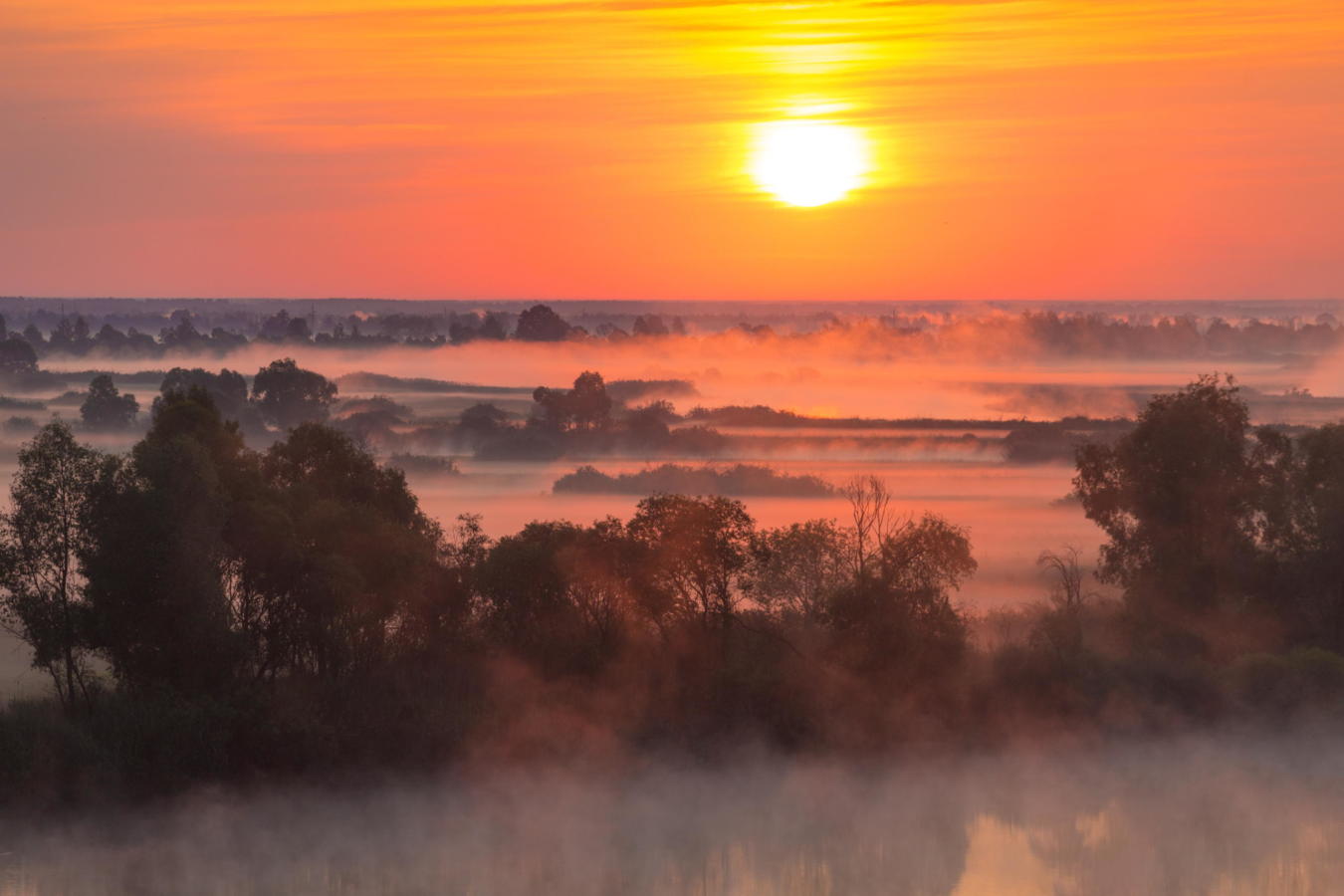
Water and fire
The drought in Polissia, Europe’s largest natural river landscape, is increasing. Due to the drainage of parts of the Ukrainian peatlands in the last century, as well as several mild, snowless winters with little precipitation, the area is becoming increasingly susceptible to fires. Drained moors and pine forests are burning. FZS supports colleagues in the protected areas of Polissia with pumps and other equipment to extinguish the fires. In addition, it has initiated one of the largest wetland restoration projects in protected areas in the history of Ukraine, covering an area of 20,000 hectares.
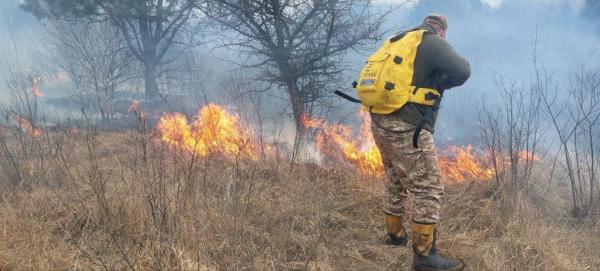
Since spring, there have been repeated fires in Polissia, burning many hectares of pine forest and drained peatlands. Most of these fires are likely caused by negligence. Shelling of Ukrainian troops in the forest has also caused large areas of forest to burn, especially in 2022. Spring fires are not unusual in Polissia, but this year the danger is particularly high. Without the usual spring floods that provide moisture, the risk of fires has increased well into the autumn. Our colleagues in the protected areas, especially in the eastern part of Polissia, have to respond particularly frequently during the hot months to extinguish individual fires. FZS has provided firefighting equipment to combat the fires. This means that the fires can usually be kept under control.
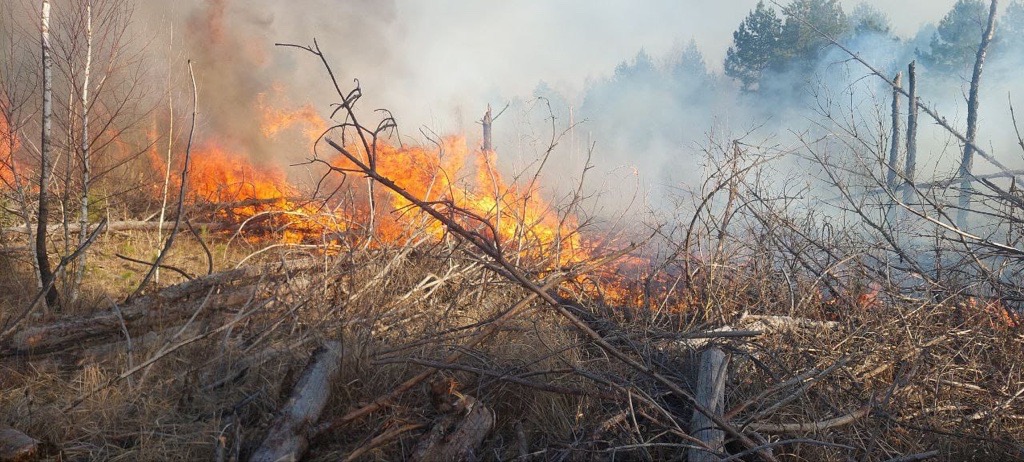
Peat fires that occur in drained areas are particularly dangerous. In such fires, the fire penetrates deep into the peat and is very difficult to extinguish. A study by Maire Kirkland and colleagues from 2023 shows that the valuable ecosystems of Polissia – including bogs, floodplain meadows and rare hardwood floodplain forests consisting mainly of pedunculate oak – are particularly vulnerable to large-scale fires during prolonged droughts. Drainage areas are especially at risk from fire. Rare plants and amphibians burn or dry out, releasing carbon. In the worst case, such fires can lead to the spread of radiation from the Chernobyl exclusion zone. Part of the strictly protected Drevlianskyi Nature Reserve, which burned frequently in the spring and where activities such as hunting, fishing, agriculture, forestry and tourism are prohibited, lies within the Chernobyl exclusion zone. The air quality is also suffering from the smoke: smoke particles from the fires can still be measured 150 kilometres away in Kyiv and are deteriorating the air quality.
FZS has been supporting the protected areas in Polissia for over 20 years. Cars have been donated to the parks and administrative buildings for the protected areas have been financed. Since 2019, FZS has been campaigning for the rewetting of drained peatlands in northern Ukraine. Together with the protected areas in Polissia, drained bogs are currently being rewetted on an area of 20,000 hectares, equivalent to 28,000 football fields. Once these wetlands have been renatured, they will function like sponges, storing water in the landscape. Among other things, this will reduce the risk of fires and store carbon at the same time.
The current canal network causes excessive and rapid drainage of water from the wetlands. Therefore, the drainage ditches are being filled in with excavators or, in the case of small ditches, with shovels. This allows the water to remain in the wetlands and drain away more slowly throughout the year.
Peatlands are among the most valuable ecosystems on Earth, providing essential services to both, nature and people. These wetlands play a key role in regulating water, preventing floods and reducing fires. They can store vast amounts of carbon and thus contribute to mitigating climate change. The unique biodiversity of peatlands is home to many species whose survival depends on these intact swamp and peatland landscapes.
Nature conservation can only succeed if we work together. Join us in supporting the protected areas in Polissia. We appreciate your donation. Thank you very much.






